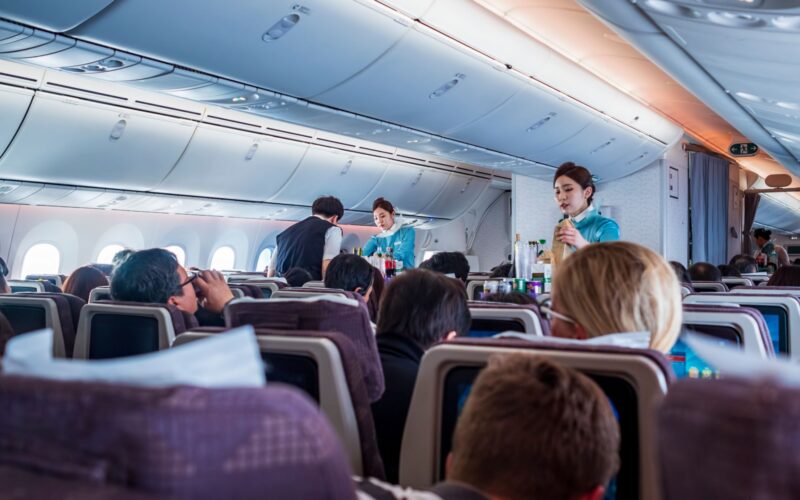Korean Air announced that it has renewed its cabin service procedure in light of rising cases of extreme turbulence on commercial flights.
Since July 1, 2024, the South Korean flag carrier has wrapped up its in-flight services 40 minutes prior to landing on all medium to long-haul flights, 20 minutes earlier than the previous service policy.
Korean Air believes that the 20-minute change will allow in-flight services to end before the airplane begins its descent to land, thereby minimizing the risk of turbulence to passengers and crew members.
“Turbulence has become a persistent and growing problem in recent years with the number of incidents doubling in Q1 2024 compared to Q1 2019,” the airline said in a statement.
“Turbulence is becoming more frequent, especially as the aircraft descends, due to large temperature differences between altitudes,” the airline said, adding that this is why it made the decision to shorten its cabin service procedure.
The airline said it is undertaking a comprehensive review of service strategies in light of recent turbulence to ensure the highest standards of safety and experience for its passengers.
The months of May and June 2024 saw a number of incidents where flights encountered severe turbulence, resulting in injuries, and in one tragic instance, the death of one passenger.
On May 20, 2024, a Singapore Airlines flight from London-Heathrow Airport (LHR) to Singapore Changi Airport (SIN) was forced to divert and perform an emergency landing at Bangkok’s Suvarnabhumi International Airport (BKK) after encountering severe turbulence.
The incident caused the death of one passenger, with more than 30 others injured.
A few days after the incident, Singapore Airlines said that it will take on a “more cautious” approach to managing rough air currents on flights by stopping all meal services in the cabin when the seatbelt sign is on.
Less than a week later on May 26, 2024, a Qatar Airways flight encountered severe turbulence while flying over Turkey on its route from Doha to Dublin, resulting in 12 injured passengers.
On June 30, 2024, an Air Europa flight from Madrid to Uruguay encountered turbulence so severe that one passenger went through the cabin roof, and a further 30 more passengers were injured.
According to a June 2023 study conducted by researchers from the University of Reading in England, flight turbulence is bound to get stronger due to climate change. The study found that warmer air from CO2 emissions is increasing windshear in the jet streams, strengthening clear-air turbulence in flight routes over the United States, Europe, the Middle East, and the South Atlantic.

